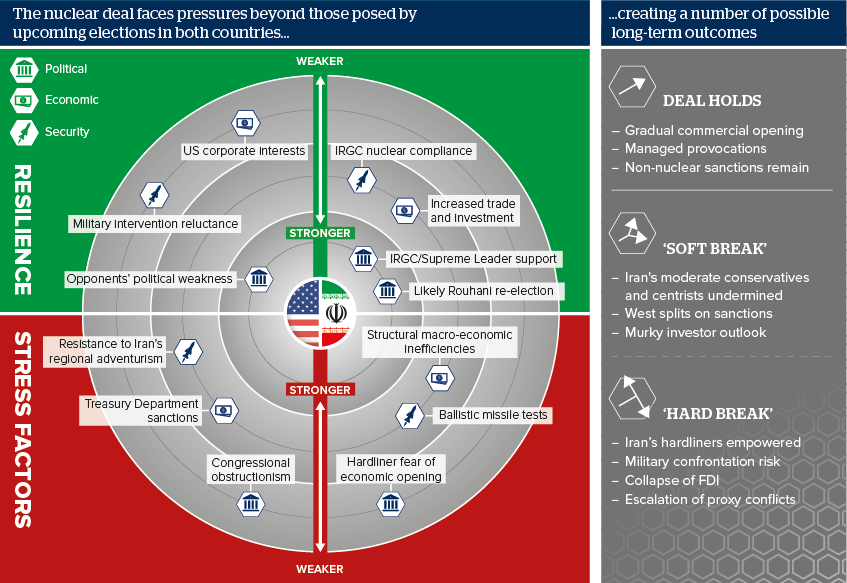Iran nuclear deal should hold despite challenges
After one year, the landmark agreement continues to find support in the US and Iranian presidential administrations
Source: Oxford Analytica
Outlook
With Washington facing a leadership transition in the new year, the benefits of the Joint Comprehensive Plan of Action (JCPOA), more commonly known as the Iran nuclear deal, continue to be scrutinised in both Iran and the United States. A loss for US President Barack Obama's chosen successor, Hillary Clinton, could lead to the unravelling of the deal, while new US sanctions or lacklustre economic growth in Iran over the medium term would erode support there.
Even if Hillary Clinton prevails at the ballot box and President Hassan Rouhani manages to deliver the promised economic benefits of the deal, longer-term tensions will continue to generate business risks and diplomatic pitfalls.
Impacts
- Iran's Supreme Leader backed the deal, but could pull his support should economic growth remain slow.
- European policymakers would probably be less punitive than Washington in response to minor Iranian violations.
- Beijing and Moscow are likely to benefit diplomatically from Iranian frustrations with Washington.
- While the deal's outright collapse is unlikely, annulment would see improved US ties with the Gulf states and Israel.
- Collapse of the deal would increase the risk of a new conflict between Israel and Iran's allies, Hezbollah and Hamas.
See also
- US policy will threaten the Iran nuclear deal - Dec 2, 2016
- Allies will seek reassurance from next US president - Oct 21, 2016
- Risks to Iran nuclear deal are rising - Jun 15, 2016
- More graphic analysis
